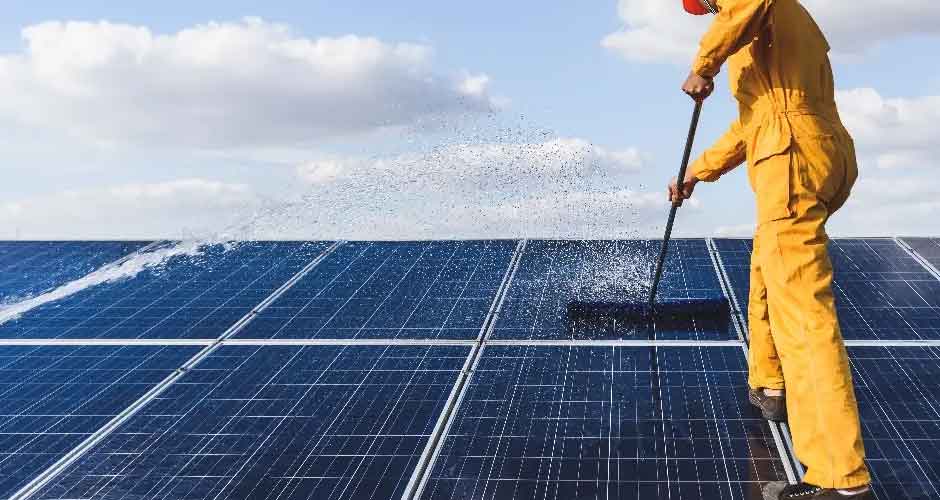Electric bills keep going up. The average household in the United States pays about $120 per month for electricity. It adds up with other bills and expenses.
The high cost of paying for electricity is leading many homeowners to make changes. One of the changes involves going solar.
There are several benefits that come with going solar. Before you install solar panels, you must consider several factors.
Read on to learn the top eight things to consider before installing solar panels.
1. Does Your Roof Need Repairs?
You might have a vision in your mind about installing solar panels. That vision can’t come true unless you have a stable roof that can support the panels.
Your roof’s status will determine if it’s a candidate for solar panels. If there’s roof damage, it isn’t a good idea to install panels on it. The same goes if there’s a need to replace it.
It isn’t wise to install solar panels on a roof that’ll need to be dismantled in a couple of years. It’s a waste of money. Get the repairs out of the way first, and then you can put up the solar panels.
2. The Size and Slope of Your Roof
You’ll need to consider how much space you have to work with. Having enough room for the solar panels is a must. Take the time to audit the space of your roof to see if it’s worth installing the grid.
The angle of your roof also impacts solar panel efficiency. It should face south and have a slope of between 15 to 40 degrees. This is the ideal slope to get the most amount of sunlight to the solar panels.
What if your roof isn’t the right size? You can ask the solar company if they can install the solar panels in your yard if it’s big enough. The ideal yard should have minimal shade and tree cover.
3. Current Energy Usage
Understanding how much solar energy you need to generate is important. Pay attention to your energy usage patterns as well as your last energy bills.
Provide all this information to your solar panel installer. A reputable installer will factor in the cost per unit of power. This formula will help determine if your solar panel system can give you all the energy your household will need.
4. Connecting to the Grid
Going solar means, you’ll have to connect to the grid. It’s common for homeowners to link to the grid via local electric utilities.
Keep in mind this involves several processes. Factor in the time it’ll take to hook up your new system to the grid. This isn’t something that can be done overnight.
Find out how much you’ll pay in fees to link up to the grid. In most cases, it can be a one-off fee.
Connecting to the grid can have some perks. Some utility providers offer net metering. If this mechanism is in place, your excess energy can help lower your electric bill.
5. Budget and Financing
When it comes to installing solar panels, you can’t go cheap as the cheaper ones are often less durable. They can also be dangerous and pose a threat to your safety as they can cause a fire.
Prepare an installation budget. Discuss it with the company you choose to work with. You should ask them if they offer any financing options to help you cover the costs of the solar panels.
6. Incentives and Tax Credit Programs
Did you know that there are various incentives homeowners can take advantage of to help them switch to solar energy? The federal government offers a tax credit that covers a percentage of the cost of a solar PV system. Take advantage of it before it expires in 2035.
Your state may also offer its own rebates. You can also contact your local utility and electricity provider, as they may also offer you savings.
7. Types of Warranties
Don’t forget to ask about the warranty as there are different types of them. The standard industry warranty covers solar panels for 25-30 years. It should cover a guaranteed minimum power output over the warranty period of the panel.
Ask about the installation warranty, which covers issues related to improper system installation. It can also cover things like defective parts. This type of warranty can last anywhere between 2-10 years.
You’ll also need to ask about the inverter warranty. This warranty covers the standard string inverters that handle power. A good intervener warranty should last at least five years.
8. Pick the Right Solar Energy Provider
Not all solar energy providers are equal, so find a reputable one. You’ll need to do your research to find a company you can trust.
Take the time to go over all the reviews, as it’s a great way to gather feedback from former clients. You can also ask each company to give you testimonials. A reputable company should be more than happy to provide you with a list of testimonials.
Here’s some good advice to keep in mind. When you’re ready to sign a contract, you should read over it carefully. Get any questions or concerns addressed before you sign on the dotted line.
Need to find a provider that you can hire? Click on the link to look for local solar companies near you.
Going Solar Is the Way to Go
Are you tired of having to pay those high electric bills? If you want to save money and help the environment, now’s the time to plan on going solar. With the help of this guide, you can facilitate this process.

